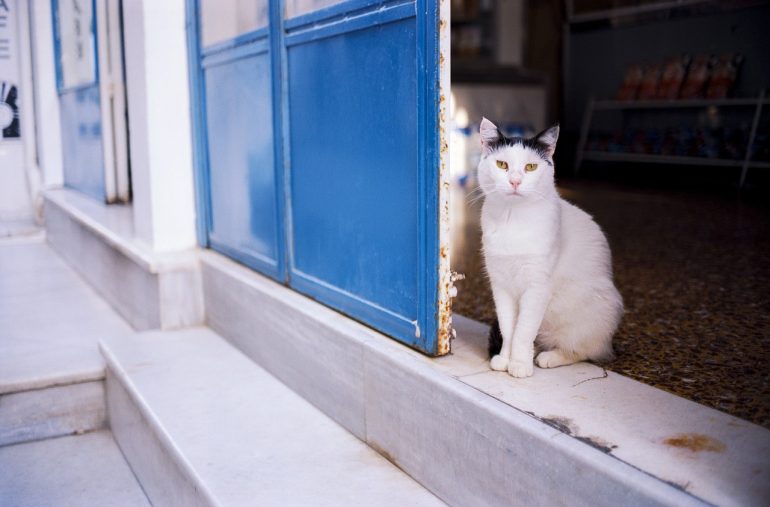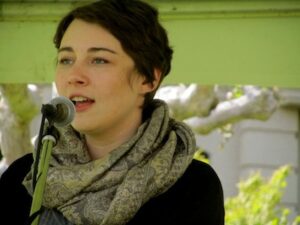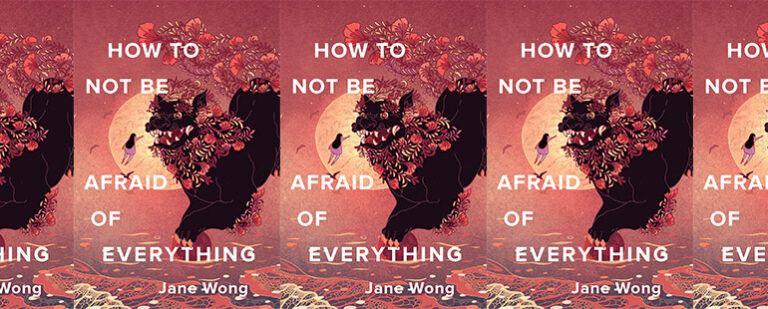Writing Lessons: Portia Elan

In our Writing Lessons series, writers and writing students will discuss lessons learned, epiphanies about craft, and the challenges of studying writing. This week, we hear from Portia Elan, a graduate of the University of Victoria’s MFA Program. You can follow her on Twitter @portiaelan. —Andrew Ladd, Blog Editor
 Pay attention, the cat has been telling me all along: I’m not a thing that is necessary to her. It flatters my vanity that she sleeps near me and that she sits at my feet while I’m writing. But I am not necessary to her, the same way I am not necessary to poetry. My room is full of the detritus of moving. Two silk prom dresses, now almost ten years old, are piled on the bed and the cat curls her dark body across them.
Pay attention, the cat has been telling me all along: I’m not a thing that is necessary to her. It flatters my vanity that she sleeps near me and that she sits at my feet while I’m writing. But I am not necessary to her, the same way I am not necessary to poetry. My room is full of the detritus of moving. Two silk prom dresses, now almost ten years old, are piled on the bed and the cat curls her dark body across them.
Somewhere in rural Illinois, it is morning and two poets are letting their blonde dogs out to run. The woman is wearing a turtleneck and the man has brought her a cup of coffee. For a year they were my teachers under the table—officially I wasn’t there, in their classes—and when I was accepted to a small handful of writing programs, they counseled me to choose the school where my writing would improve the most, not the place offering the most money, or with the friendliest cohort, or with the biggest names. I saw what they had—a house that made poetry religion—and chose the school where my writing would grow best.
Two years later. I sit on a boulder in the gravel parking lot of a gas station in the mountains between Canada and California, sipping coffee and reading Jane Kenyon’s Collected. No one I know likes Jane Kenyon; they have never suggested that I read her. She is the first poet in several years that I found on my own and I feel tenuous and triumphant in my new “discovery.” She isn’t the kind of poet that people I know think is “cool”—not ironic or colloquial. Something in her quiet has sunk its hooks into me, though.
The last two years have been full of book recommendations, of edits on my poems and manuscript, of readings and rehashings of readings. My advisor told me during my second year that when he saw what I’d turned in for workshop first year, he’d been stunned and disappointed. I’d been so self-conscious and shy, my poems had turned their bellies away from sight. The bellies are the best parts of poems, it turns out. Getting out of workshop saved my writing. The things that crack our writing open and give them new voice, new body, take experimentation and patience. It is often not until the tenth or twentieth poem-in-a-new-voice that I write anything worth keeping.
There are no deadlines now. Poetry doesn’t need me and there will be no dire consequences if I never write another poem. What begins now—on a boulder in a gas station parking lot—is a negotiation between me and poetry. There is no one else in the conversation anymore, and no room for careerism or the concerns of publication. How much do I want to create great poems? Am I willing to write the fortieth or the fiftieth poem-that’s-not-quite-right? Will I read, insatiably, widely, with a flexible, questioning mind? How do I build a house that makes poetry the floor and the roof and the sky outside, as well?
To submit your own essay to Writing Lessons, read our guidelines here.


